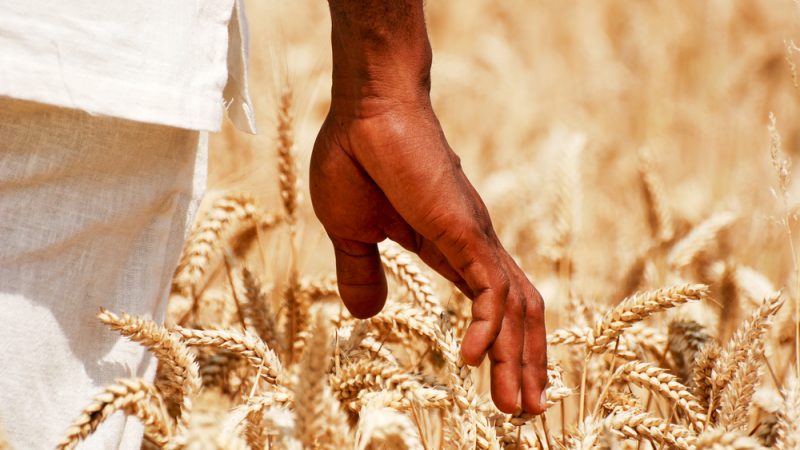
By Vera Songwe
This grand bargain offers a three-pronged deal to the G7.
The European Unnion (EU) gets short to medium-term access to energy, stability of supply, and acceleration of the transition as well as new and stronger trade and geopolitical partnerships. Africa gets a surge in investment into food and energy systems and investment for its youth who number seven times as many as European youth and for whom migration seems to be the only attraction.
First, on energy, more than 5,000 bcm of natural gas resources have been discovered in Africa. This could cover Europe’s immediate needs and also fast-track Africa’s energy access and industrialization aspirations.
These energy discoveries can fast-track a just transition for Africa from Senegal and Mozambique to Mauritania, Angola and Algeria to Uganda.
Together these countries could provide Europe with the energy security it needs while simultaneously making it possible for Africa to accelerate its own energy security and help stand up Africa’s domestic fertiliser, steel, cement, digital, health and water desalination industries.
Most importantly energy security would contain inflation and benefit Africa as well.
Cumulative CO2 emissions from the use of these gas resources over the next 30 years would be around 10 billion tonnes. According to the International Energy Agency (IEA), if these emissions were added to Africa’s cumulative total today, they would bring its share of global emissions to a mere 3.5% of global emissions while lifting millions out of poverty.
Furthermore, accelerating investments in gas, allows Africa to fast-track its conversion to long-term renewable energy; which is a clear commitment – through the African Green Recovery Strategy.
Many African countries are already leading the way – Kenya and Senegal already have over 65 % of energy from renewable sources. Africa’s long-term comparative advantage is in renewable energy which it can supply to the EU economy, thereby making the so-called climate clubs into something real and inclusive.
The second part of the deal is in the area of food security.
Europe, the US and the UK represent over 45% of Africa’s wheat imports amounting to $230 billion. Africa today still imports over 80% of its wheat, maize, rice and cereal needs. A renewed focus on Africa’s food security means Africa not only secures supply but also focuses on increased internal production.
A partnership for increased wheat, maize and other cereal production on the continent is a profitable venture. As we discuss “near-shoring” to build better trade resilience exploiting better Africa’s agriculture potential for global food production is a must.
In this regard, we can also focus on strengthening the African fertiliser production supply chain by building on the existing capacity already in Morocco, Egypt, Angola and Nigeria as also Togo, Senegal and Ethiopia. Increased fertilizer production will help to increase use, lower prices and increase productivity.
A program to manufacture more fertilizer on the continent will increase supply, reduce cost and improve productivity. Agriculture in general accounts for over one-fifth of the greenhouse gas emissions, Africa can also lead the way in increasing the adoption of bio fertilizer as is the case already in places like Tanzania with local companies leading the way.
African nations must keep their own commitment to transform agriculture into viable business sectors for the youth and women alike, improve the governance of the sector and make the sector more climate-resilient and improve our food systems.
One way toward this win-win grand bargain is through investments within the framework of the existing Europe-Africa Pact. The recently announced US & G7 Partnership for Global Infrastructure, which builds on last year’s Build Back Better World plan, could also be the G7s offer and home for their part of the bargain.
Making this real, scaled and bringing in more ambition from the multilateral development banks will really help improve our partnership as we look towards the Africa-hosted climate summit in November in Egypt.
But first, countries need political space and also fiscal space to address the immediate impending hunger crisis. Countries need liquidity through the release of new special drawing rights (SDRs).
A new issuance of Special Drawing Rights (SDRs) will allow Africa to go from $33.6 billion to $67 billion, speeding up the on-lending of the SDRs will get overall allocation to $100 billion.
More importantly, on-lending will allow immediate activation of the IMF’s Resilience and Sustainability Trust (RST), which through its sustainability lens could support the bargain, while also funding the Poverty Reduction and Growth Trust will support additional fiscal and balance-of-payment space for countries.
In addition to this, an extension of the Debt Service Sustainability Initiative and or extension of the payment period to 3 years would also help create additional fiscal space.
With the new International Development Assistance allocation, the World Bank could move quickly to support increased lending to the agriculture sector through the Global Agriculture and Food Security Program in addition to increasing social protection programs.
Finally, for countries in need of debt restructuring, a more streamlined and inclusive G20 debt resolution framework which includes middle-income countries should be supported.
For both G7 countries and Africa, this crisis is profoundly unwelcome, yet it provides the opportunity now to help us address the three defining global issues of our time – the climate challenge, energy security for all and food security.
There are 320 million people at risk of facing food insecurity by the end of the year. By seizing this crisis, the G7 in Schloss Elmau can turn it into a historical win-win march towards greater prosperity.











